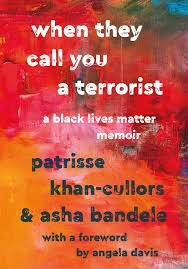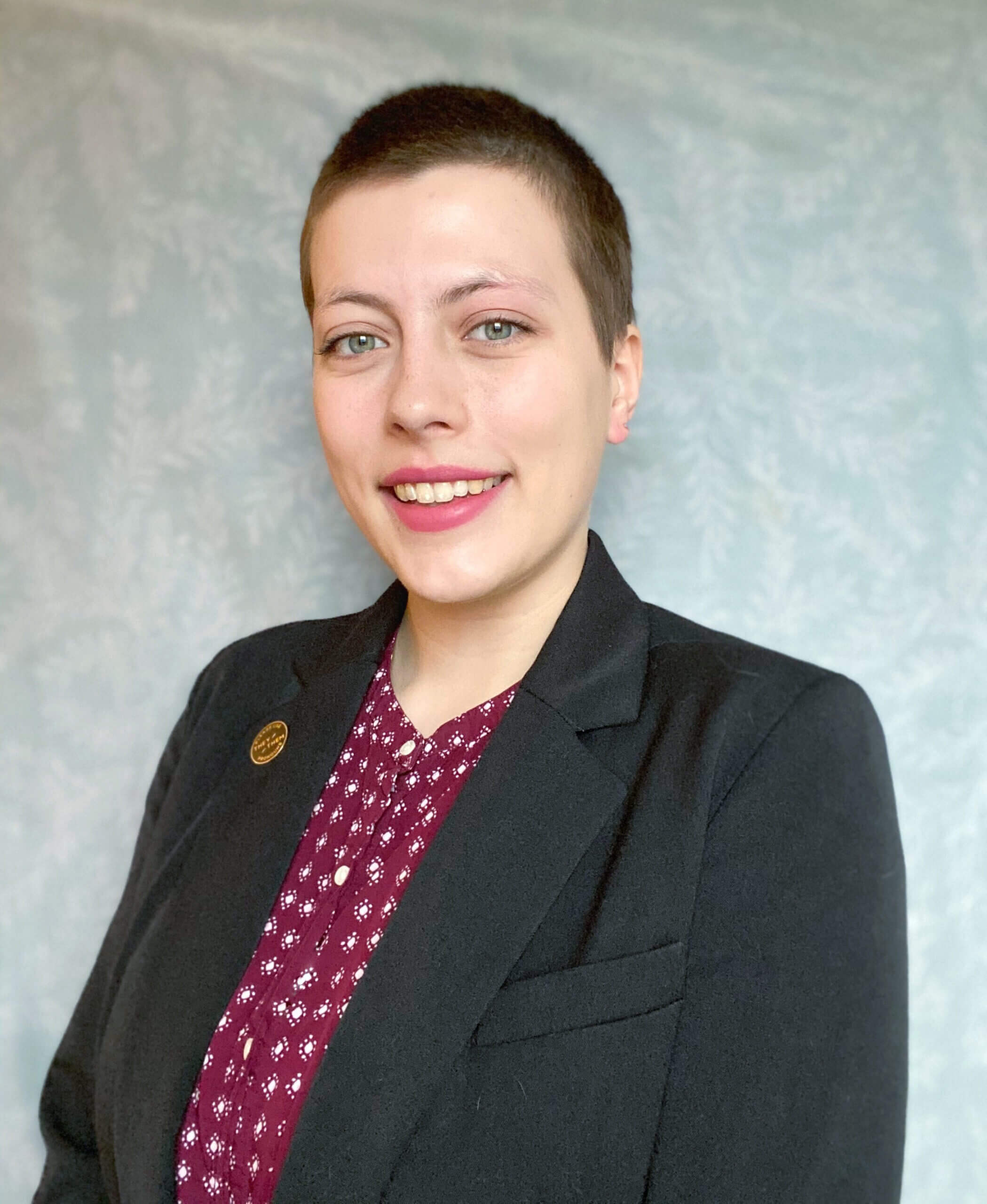 Huskie Conversation Café will transform into a new podcast this fall with Huskies invited to listen in and reflect on conversations about NIU’s Common Reading Experience book, “When They Call You A Terrorist: A Black Lives Matter Memoir.”
Huskie Conversation Café will transform into a new podcast this fall with Huskies invited to listen in and reflect on conversations about NIU’s Common Reading Experience book, “When They Call You A Terrorist: A Black Lives Matter Memoir.”
The Huskie Conversation Café Podcast features new episodes every Monday for 12 weeks, as well as mini-episodes every Wednesday, with free links available through Social Justice Education.
“I would encourage everyone to come with an open and mind and be pushed to learn and grow,” said Jane Pappas, assistant director of Social Justice Education for Academic Diversity, Equity and Inclusion.

Jane Pappas, assistant director of Social Justice Education for Academic Diversity, Equity and Inclusion.
Pappas will facilitate conversations as host of the podcast, with new experts from NIU and the DeKalb community featured weekly to provide their perspectives on the broad themes addressed in the book, written by Patrisse Khan-Cullors and asha bandele.
Those who listen are encouraged to do self-guided journaling, with the help of self-reflection questions.
“We’re providing them with an opportunity to interact with a really diverse range of perspectives,” Pappas said. “We have a lot of folks you might not otherwise get to hear from. It’s an excellent opportunity for people to listen in on conversations maybe they have not had before.”
Those interested in learning more about these topics in a different format can register for an array of social justice education programs, including a weekly Social Justice Workshop & Townhall Virtual Series and a new virtual CODE Facilitator Institute.
The expanded, interactive programming will cover relevant and important topics and perspectives as part of NIU’s ongoing mission to champion equity and inclusion, said Jocelyn Santana, director of Social Justice Education for ADEI.
She emphasized the value of the programming, especially today amid the Black Lives Matter Movement and recent unrest in the country.
“We must really challenge ourselves. It’s not OK for us to be passive,” she said. “Our institution, students, staff and faculty need to engage and be active agents in addressing systemic oppression and building an equitable community. We need to examine hard truths and have difficult conversations that matter. Society has historically adopted a philosophy that, ‘I’m a good person, therefore, I’m not racist, biased and/or do not commit microaggressions.’
“The problem with this perspective is that being good is not good enough. Being a good person does not absolve any of us from taking action and addressing oppression to ensure we can achieve equity.”
The dialogues should and will include a variety of perspectives, some perhaps in opposition to others, Santana said.
The programming provides an instrument for learning and understanding different perspectives, Santana said. She emphasized a quote in the social justice handbook, “Is Everyone Really Equal?”: “Everyone has an opinion. Opinions are not the same as informed knowledge.”
“These programs will provide knowledge that as a Huskie community will allow us to be empowered and take actions that will move us toward a more equitable and inclusive community,” Santana said.
In the first podcast, Associate Professor and award-winning author Joseph Flynn will cover the intro of the book through Chapter 3, addressing themes, such as racial profiling. Flynn, associate director of academic affairs at the Center for Black Studies and an associate professor in the Department of Curriculum and Instruction, wrote the book, “White Fatigue: Rethinking Resistance for Social Justice.”
Among the wide array of future experts are Counseling and Higher Education Professor Katy Jaekel, Gender and Sexuality Resource Center Director Molly Holmes, Associate Professor of Anthology and Nonprofit and NGO Studies Mark Schuller, NIU Police Officers Shaunda Wilson and Rob Williams, Gender and Sexuality Resource Center Assistant Director Ari Owens and many more.
While those who listen to the podcast are encouraged to read “When They Call You A Terrorist: A Black Lives Matter Memoir,” each episode will include an overview of the chapters addressed.
“You will get a deeper understanding of what we’re talking about if you have read the book,” Pappas said. “You don’t have to read it, but you’ll have a better time if you do.”
